Florian Borchert
xMEN: A Modular Toolkit for Cross-Lingual Medical Entity Normalization
Oct 17, 2023Abstract:Objective: To improve performance of medical entity normalization across many languages, especially when fewer language resources are available compared to English. Materials and Methods: We introduce xMEN, a modular system for cross-lingual medical entity normalization, which performs well in both low- and high-resource scenarios. When synonyms in the target language are scarce for a given terminology, we leverage English aliases via cross-lingual candidate generation. For candidate ranking, we incorporate a trainable cross-encoder model if annotations for the target task are available. We also evaluate cross-encoders trained in a weakly supervised manner based on machine-translated datasets from a high resource domain. Our system is publicly available as an extensible Python toolkit. Results: xMEN improves the state-of-the-art performance across a wide range of multilingual benchmark datasets. Weakly supervised cross-encoders are effective when no training data is available for the target task. Through the compatibility of xMEN with the BigBIO framework, it can be easily used with existing and prospective datasets. Discussion: Our experiments show the importance of balancing the output of general-purpose candidate generators with subsequent trainable re-rankers, which we achieve through a rank regularization term in the loss function of the cross-encoder. However, error analysis reveals that multi-word expressions and other complex entities are still challenging. Conclusion: xMEN exhibits strong performance for medical entity normalization in multiple languages, even when no labeled data and few terminology aliases for the target language are available. Its configuration system and evaluation modules enable reproducible benchmarks. Models and code are available online at the following URL: https://github.com/hpi-dhc/xmen
MEDBERT.de: A Comprehensive German BERT Model for the Medical Domain
Mar 24, 2023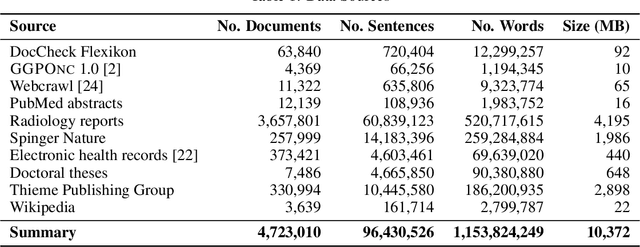
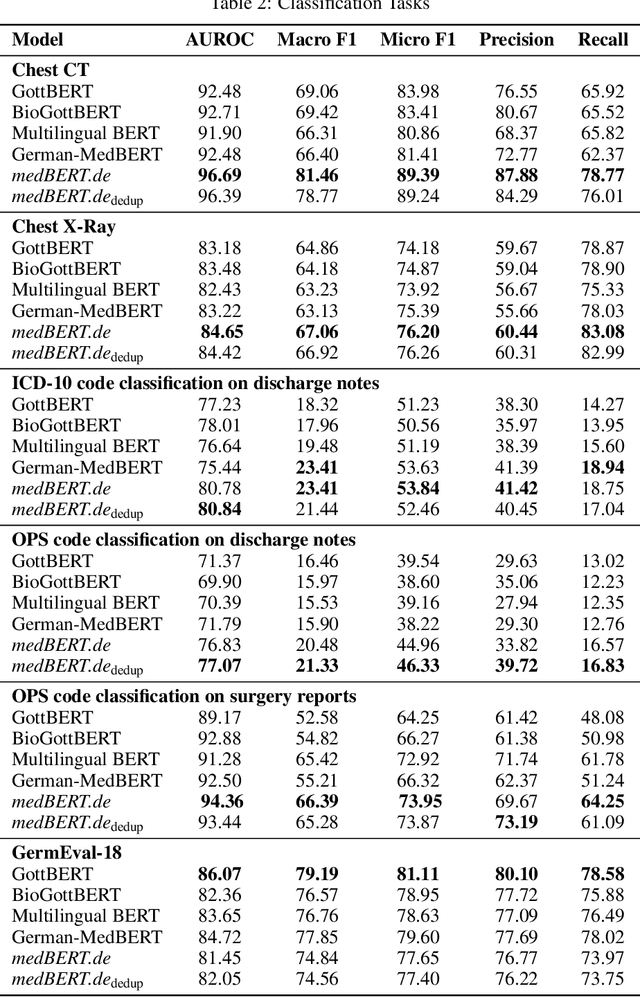
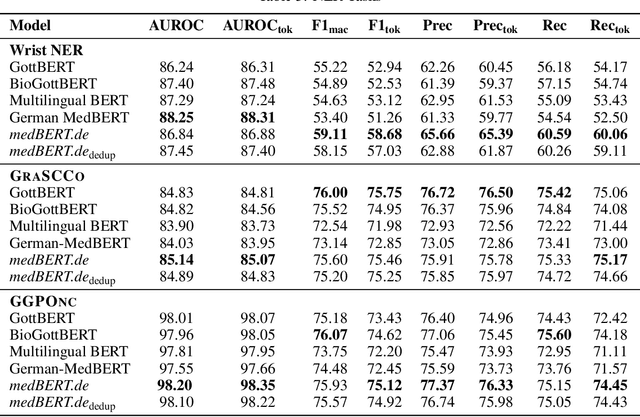
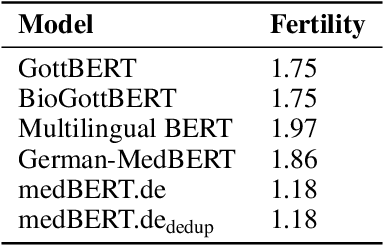
Abstract:This paper presents medBERTde, a pre-trained German BERT model specifically designed for the German medical domain. The model has been trained on a large corpus of 4.7 Million German medical documents and has been shown to achieve new state-of-the-art performance on eight different medical benchmarks covering a wide range of disciplines and medical document types. In addition to evaluating the overall performance of the model, this paper also conducts a more in-depth analysis of its capabilities. We investigate the impact of data deduplication on the model's performance, as well as the potential benefits of using more efficient tokenization methods. Our results indicate that domain-specific models such as medBERTde are particularly useful for longer texts, and that deduplication of training data does not necessarily lead to improved performance. Furthermore, we found that efficient tokenization plays only a minor role in improving model performance, and attribute most of the improved performance to the large amount of training data. To encourage further research, the pre-trained model weights and new benchmarks based on radiological data are made publicly available for use by the scientific community.
GGPONC: A Corpus of German Medical Text with Rich Metadata Based on Clinical Practice Guidelines
Jul 13, 2020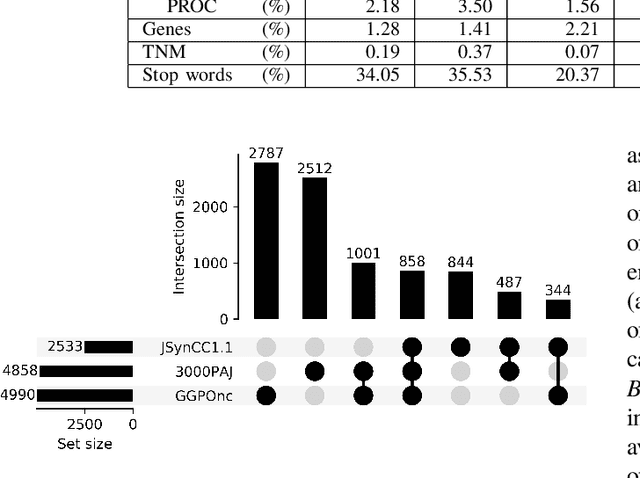
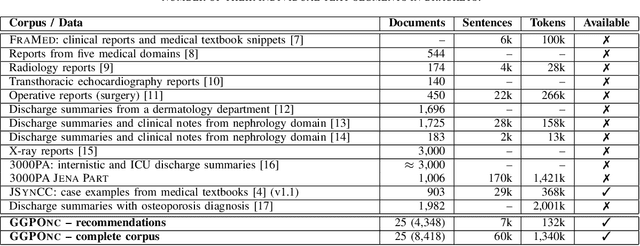
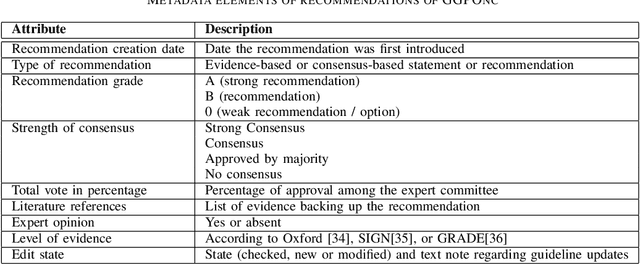
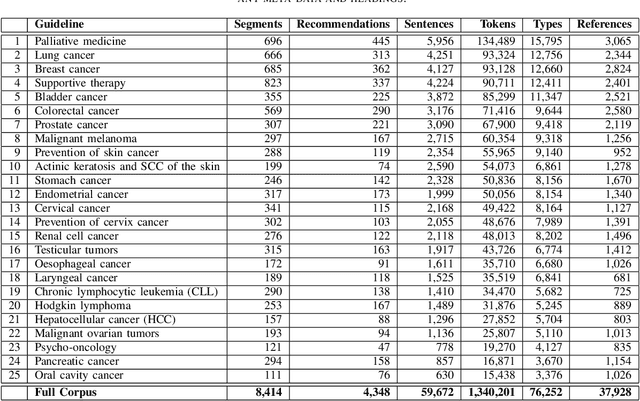
Abstract:The lack of publicly available text corpora is a major obstacle for progress in clinical natural language processing, for non-English speaking countries in particular. In this work, we present GGPONC (German Guideline Program in Oncology NLP Corpus), a freely distributable German language corpus based on clinical practice guidelines in the field of oncology. The corpus is one of the largest corpora of German medical text to date. It does not contain any patient-related data and can therefore be used without data protection restrictions. Moreover, it is the first corpus for the German language covering diverse conditions in a large medical subfield. In addition to the textual sources, we provide a large variety of metadata, such as literature references and evidence levels. By applying and evaluating existing medical information extraction pipelines for German text, we are able to draw comparisons for the use of medical language to other medical text corpora.
 Add to Chrome
Add to Chrome Add to Firefox
Add to Firefox Add to Edge
Add to Edge